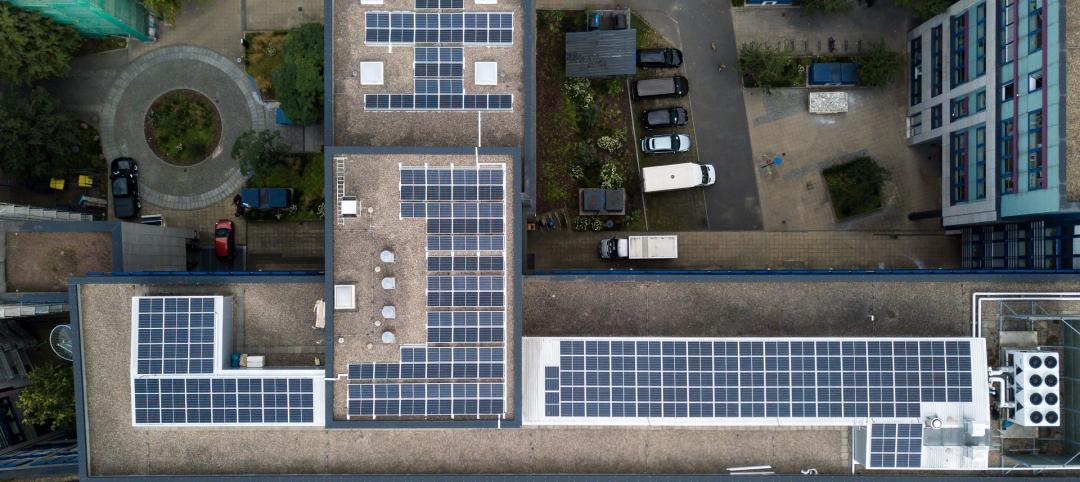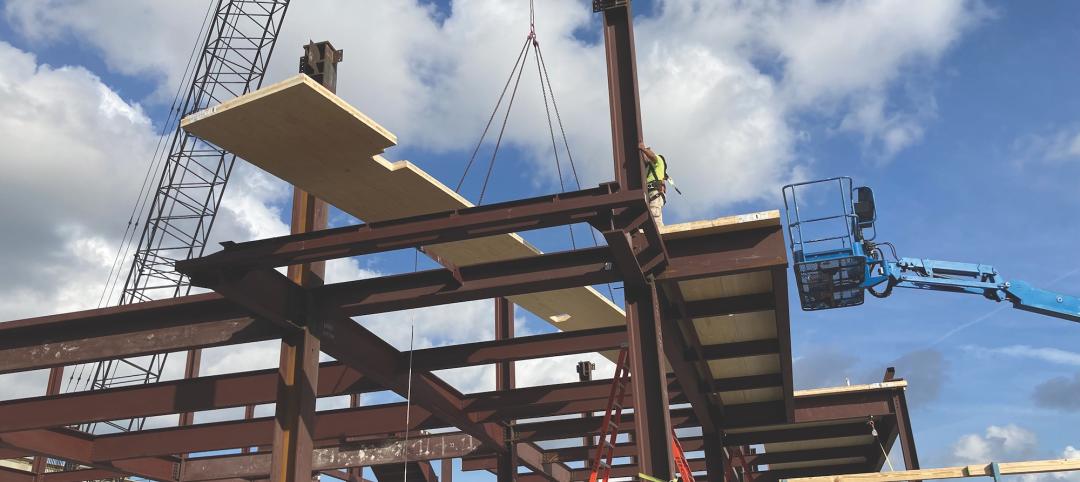CoreNet Global, a major international association for corporate real estate and workplace executives, has released a public policy statement advocating adoption of net-zero energy buildings: "We support the principle that smart and responsible energy policies and practices reduce corporate carbon footprints and greenhouse gas emissions, and we encourage our members' companies to drive energy efficiency to optimal levels with net-zero buildings as a top measure of long-term success."
The same statement calls on federal governments around the world to incentivize building owners, investors, and occupants who proactively reduce their carbon footprints through the use of green energy development and retrofits.
"Office, industrial, retail and other types of commercial real estate account for 40% of the world's annual energy consumption, making energy management and energy conservation socially responsible corporate practices," says CoreNet Global Chairman Jim Scannell, Senior Vice President of Administrative Services at The Travelers Companies, Inc.
The statement emphasizes "tangible benefits for companies and management teams which prioritize energy efficiency and take steps to reduce the carbon footprint. They will realize meaningful return on investment financially, socially and environmentally—as is consistent with the principles of the Triple Bottom Line accounting model."
CoreNet Global's Issues Advocacy Focus Group coordinated the wide-ranging statement based on extensive input from subject matter experts and the extensive, long-term documentation of best-in-class energy management practices from among its more than 7,900 members worldwide. It also marks the first time that corporate occupiers representing the demand side of the commercial real estate industry have spoken with a unified voice to advocate for public policy issues and corporate practices that impact business and society. In its 2012 Industry Leaders Opinion Poll, 90% of CRE executives who responded regard energy management as the most urgent issue facing the CRE industry.
"We're beginning to see the huge environmental, social and economic benefits that energy-independent facilities are offering," Scannell added.
A related finding from CoreNet Global's new Corporate Real Estate 2020 research initiative identifies one key enabler of the migration toward net-zero, predicting that buildings will become energy-producing "micro-grids" that can share electric power across public and private distribution networks.
Key action steps advocated for developers include articulating a clear and compelling vision for energy efficiency; working with energy suppliers and other pieces of the supply chain; and continuously measuring consumption and performance. Government programs advocated include tax deductions for energy-efficiency projects; a federal loan guarantee program for retrofits; state and local incentives that favor efficiency upgrades or retrofits; and updated building codes that reward companies for peak performance.
(http://bit.ly/UJe2Wb)
Related Stories
Green | Nov 13, 2022
NREL report: Using photovoltaic modules with longer lifetimes is a better option than recycling
A new report from the U.S. National Renewable Energy Laboratory (NREL) says PV module lifetime extensions should be prioritized over closed-loop recycling to reduce demand for new materials.
Green | Nov 13, 2022
Global building emissions reached record levels in 2021
Carbon-dioxide emissions from building construction and operations hit an all-time high in 2021, according to the most recent data compiled by the Global Alliance for Buildings and Construction.
University Buildings | Nov 13, 2022
University of Washington opens mass timber business school building
Founders Hall at the University of Washington Foster School of Business, the first mass timber building at Seattle campus of Univ. of Washington, was recently completed. The 84,800-sf building creates a new hub for community, entrepreneurship, and innovation, according the project’s design architect LMN Architects.
Giants 400 | Nov 8, 2022
Top 110 Sports Facility Architecture and AE Firms for 2022
Populous, HOK, Gensler, and Perkins and Will top the ranking of the nation's largest sports facility architecture and architecture/engineering (AE) firms for 2022, as reported in Building Design+Construction's 2022 Giants 400 Report.
Giants 400 | Nov 8, 2022
Top 60 Sports Facility Contractors and CM Firms for 2022
AECOM, Mortenson, Clark Group, and Turner Construction top the ranking of the nation's largest sports facility contractors and construction management (CM) firms for 2022, as reported in Building Design+Construction's 2022 Giants 400 Report.
Industry Research | Nov 8, 2022
U.S. metros take the lead in decarbonizing their built environments
A new JLL report evaluates the goals and actions of 18 cities.
Hotel Facilities | Nov 8, 2022
6 hotel design trends for 2022-2023
Personalization of the hotel guest experience shapes new construction and renovation, say architects and construction experts in this sector.
Resiliency | Nov 8, 2022
Oregon wildfire risk law prompts extensive backlash from property owners
A bipartisan bill aimed at protecting property owners from wildfires that was passed by the Oregon legislature has prompted a strong backlash.
Reconstruction & Renovation | Nov 8, 2022
Renovation work outpaces new construction for first time in two decades
Renovations of older buildings in U.S. cities recently hit a record high as reflected in architecture firm billings, according to the American Institute of Architects (AIA).
Sponsored | Steel Buildings | Nov 7, 2022
Steel structures offer faster path to climate benefits
Faster delivery of buildings isn’t always associated with sustainability benefits or long-term value, but things are changing. An instructive case is in the development of steel structures that not only allow speedier erection times, but also can reduce embodied carbon and create durable, highly resilient building approaches.

















